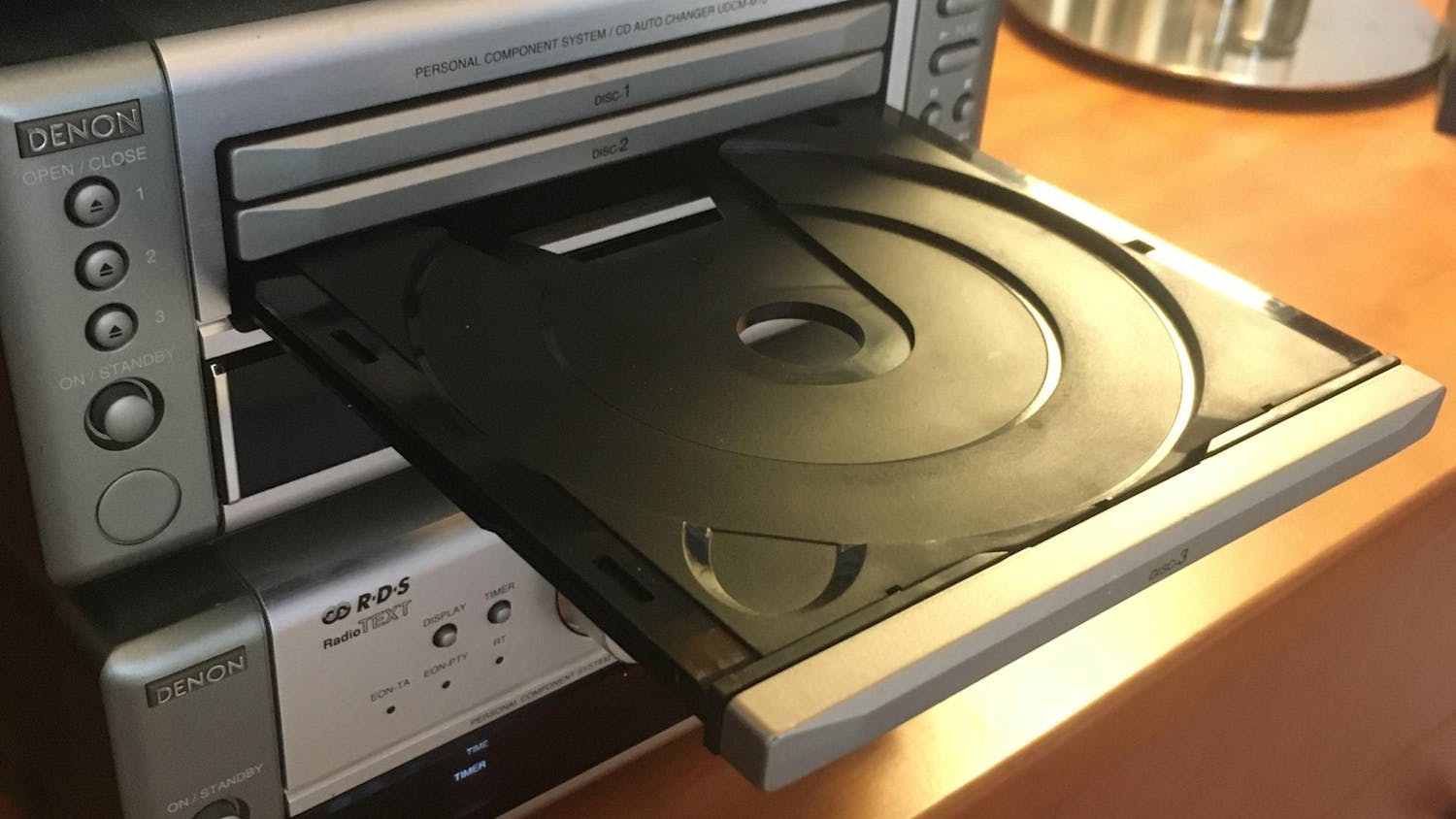Fans of hushed folk music rejoice: M. Ward has released a new album. His latest record, "A Wasteland Companion," follows the example set by his previous albums. Though fans may not see a new side of singer?songwriter Matthew Ward, they'll get a solid dose of everything they liked about him the first place. What "A Wasteland Companion" may lack in originality it more than makes up for with its poignant, understated songwriting and high production values.
The album opens on a hopeful note with the aptly titled "Clean Slate." Delicately strummed guitars underlay Ward's endearingly modest vocals as they whisper "Yeah, I only had to wait a while/ Before I got my/ Clean slate." Clocking in at just under three minutes, the album's opener doesn't go very far from where it starts, but it doesn't have to. Even with the simplest chord progressions and melodies, Ward creates an immersive sound that draws the listener in with its subtlety.
M. Ward kicks up the energy level of the album with the next track, the tongue?in?cheek "Primitive Girl." Ward details the laconic behavior of a girl over a chugging rhythm section that throws doo?wop?style piano together with a pop drumbeat. "She's a primitive girl/ Don't like to boast/ From her natural head/ To her natural toes." Though this song is hardly a rocker, it's one of the liveliest tracks on "A Wasteland Companion." M. Ward doesn't handle the track with the same poise as his quieter folk songs, but he does manage to project over the rest of the band with a slight snarkiness that gives the lyrics their much?needed edge. The reset of the album sees him in a more comfortable zone.
"Me and My Shadow" walks a happy line between the first two tracks. With its interlocking guitar lines and foreboding vocal melody, the song is edgier than most M. Ward tracks. When the drums kick in halfway through the song, M. Ward keeps up with much greater gusto than he did on "Primitive Girl." A thick, fuzzed?out bass line is added to the mix, upping the intensity of the track, but the song never feels like it reaches the climax it's hinting at. Listeners who like bombast in their music may find "A Wasteland Companion" a little underwhelming, but fans who are willing to take M. Ward by his own standards will find plenty of energy on the album.
"A Wasteland Companion" doesn't hit its full stride until "The First Time I Ran Away" at the album's halfway mark. Spaced?out synth string arrangements, whispered vocals and quietly propulsive guitar strumming mark the song as one of M. Ward's most characteristic tunes. It's easy to see how M. Ward has drawn fans from folk, psychedelic and even shoe?gaze genres with his unique blend of acoustic folk and impressionistic layered soundscapes. Both of these elements are in full play on "The First Time I Ran Away," and they show how compelling M. Ward can be when he's in his element.
The remainder of the album gradually tapers the intensity until the final track, "Pure Joy," which throws layers of overdubbed, breathy vocals against the plaintive strumming of M. Ward's acoustic guitar. Such a closing track is more than appropriate considering the tone of the album.
While M. Ward doesn't explore too wide a variety of moods on "A Wasteland Companion," his introspective approach finds a wealth of material in the sounds he does focus on. "A Wasteland Companion" certainly could have been a more ambitious album, and it doesn't mark any departure from M. Ward's well?cemented oeuvre, but this is hardly a complaint. Fans and newcomers should both find something they like on this record.





